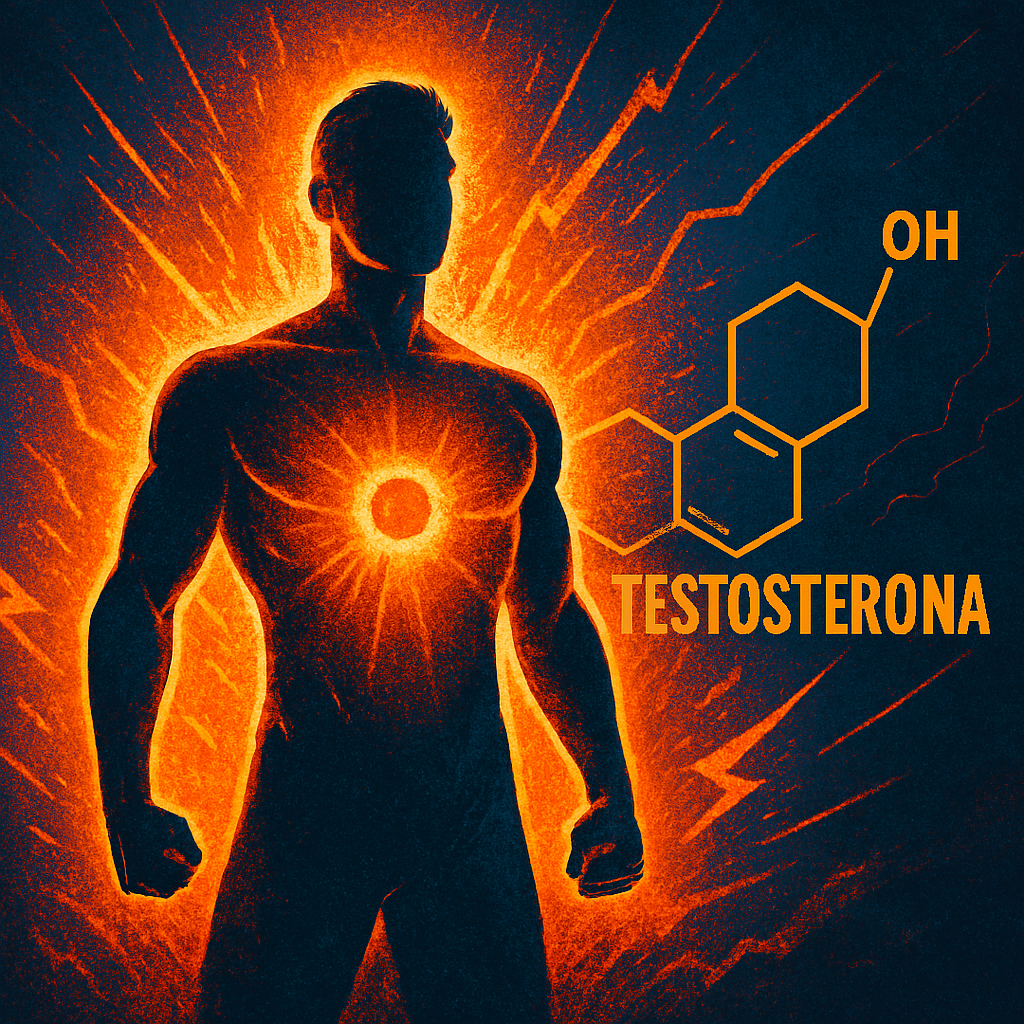The Hormone Behind Desire and Performance
Testosterone is often called the “male hormone” — and for good reason. It plays a crucial role in muscle growth, energy levels, mood, and most importantly, sexual function. When testosterone levels fall, many men begin to experience symptoms like low libido, fatigue, and difficulty achieving or maintaining an erection. While erectile dysfunction (ED) can have many causes, low testosterone (also called low T) is one of the most commonly overlooked contributors. Understanding how testosterone affects your sexual health can help you take proactive steps toward recovery and better performance.
What Is Testosterone and What Does It Do?
Testosterone is produced primarily in the testicles and is regulated by signals from the brain — specifically the hypothalamus and pituitary gland. It affects:
- Sexual desire (libido)
- Sperm production
- Muscle mass and strength
- Bone density
- Mood and motivation
- Energy and confidence
Optimal testosterone levels are essential not only for sex drive, but also for supporting the erectile response — the physical ability to get and keep an erection.
How Low Testosterone Causes ED
Testosterone supports the neurovascular mechanisms that control erections. Low T affects this process in several ways:
- Reduces sensitivity to sexual stimulation
- Lowers nitric oxide production (which helps blood vessels dilate)
- Weakens libido, making arousal less frequent or intense
- Increases fatigue and emotional flatness, reducing interest in sex
While low testosterone doesn’t always cause complete ED on its own, it can make erections weaker, less reliable, and less satisfying — especially when combined with other risk factors like stress, poor sleep, or vascular issues.
What Causes Low Testosterone?
Testosterone naturally declines with age — about 1% per year after age 30 — but other factors can accelerate this drop:
- Obesity, especially abdominal fat
- Chronic stress (increases cortisol, which lowers T)
- Sleep deprivation or sleep apnea
- Sedentary lifestyle
- Poor diet, high in sugar and processed foods
- Alcohol and drug use
- Certain medications (like opioids or steroids)
- Medical conditions like diabetes or hypogonadism
Even young men can experience low T due to lifestyle or health issues.
Symptoms of Low Testosterone
If you’re struggling with ED and notice any of the following, low testosterone may be part of the problem:
- Low libido or no interest in sex
- Fatigue or low energy
- Depression or irritability
- Difficulty building muscle or losing fat
- Poor concentration or brain fog
- Weak or infrequent morning erections
- Loss of confidence or drive
How to Test Your Testosterone
A simple blood test can measure your:
- Total testosterone (the overall amount in your blood)
- Free testosterone (the active form available to your tissues)
- Related hormones like LH, FSH, estradiol, and SHBG
Ideally, testosterone should be tested early in the morning, when levels are highest. Most labs consider levels below 300 ng/dL to be low, but symptoms and free T levels matter more than numbers alone.
How to Boost Testosterone Naturally
1. Lift Weights and Exercise
Resistance training and high-intensity interval training (HIIT) stimulate testosterone production, increase energy, and improve circulation.
2. Get Quality Sleep
Testosterone is produced during deep sleep. Aim for 7–9 hours of restful, uninterrupted sleep each night.
3. Reduce Belly Fat
Excess fat converts testosterone into estrogen. Losing even 5–10% of body weight can significantly raise T levels and improve ED.
4. Eat Testosterone-Supportive Foods
Include healthy fats (olive oil, avocado, nuts), zinc (pumpkin seeds, red meat), and vitamin D (fatty fish, eggs, sun exposure) in your diet.
5. Manage Stress
Chronic stress raises cortisol, which lowers testosterone. Use relaxation techniques like deep breathing, meditation, or journaling to keep stress in check.
6. Avoid Alcohol and Drugs
Heavy drinking, smoking, and recreational drugs suppress testosterone and damage vascular and nerve health needed for erections.
What About Testosterone Replacement Therapy (TRT)?
TRT can be highly effective for men with clinically low testosterone and persistent symptoms. It comes in various forms:
- Injections (weekly or biweekly)
- Gels or creams
- Patches
- Pellets implanted under the skin
TRT can restore libido, improve energy and mood, increase muscle mass, and support erection quality. However, it’s not for everyone. Possible side effects include: - Acne or oily skin
- Sleep apnea worsening
- Reduced sperm production and fertility
- Elevated red blood cell count
- Prostate enlargement
Men considering TRT should work with a doctor to monitor hormone levels, blood health, and prostate markers regularly.
Is Testosterone the Only Solution to ED?
Not always. If ED is caused by vascular disease, nerve damage, medication side effects, or psychological factors, boosting testosterone alone may not be enough. In many cases, a multifactorial approach is best — combining lifestyle changes, hormone optimization, mental health support, and medical treatment if necessary.
Final Thoughts: Testosterone Is a Key Piece of the Puzzle
Erectile dysfunction is rarely caused by one issue — but testosterone is often a central factor. If you’re feeling low in desire, energy, and sexual performance, checking your hormone levels is a smart step. Whether through natural changes or medical therapy, improving testosterone can help restore not just erections — but confidence, vitality, and overall quality of life.
